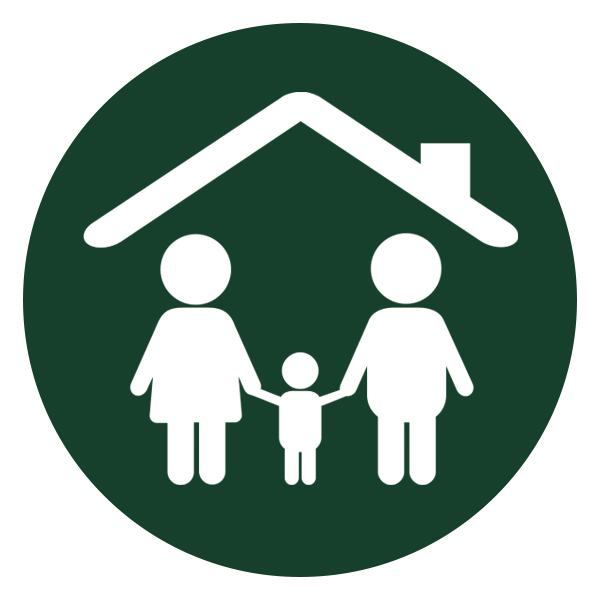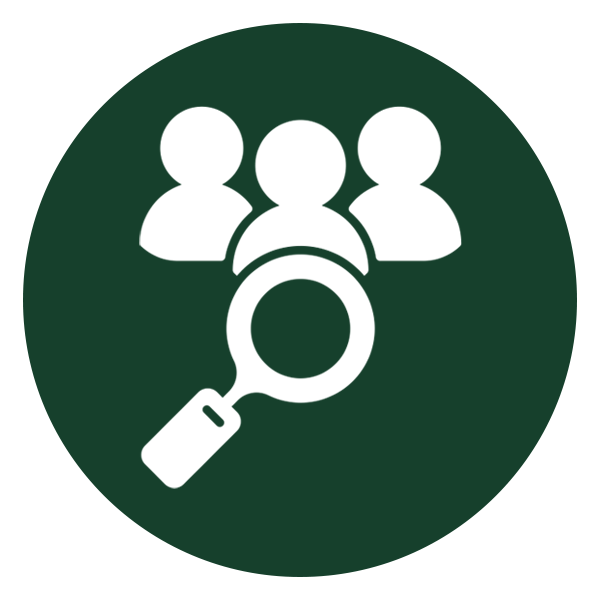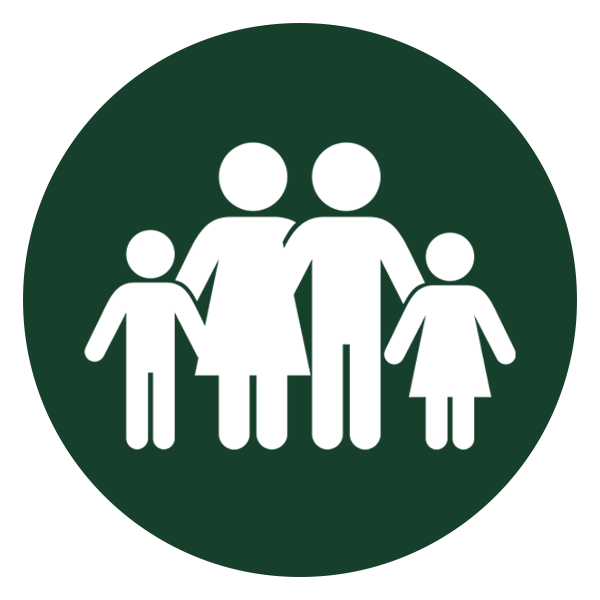Adolescent Residential Treatment Center for OCD in Southern California
Obsessive-Compulsive Disorder (OCD) is possibly one of the most misused terms regarding mental health. The tendency to write OCD off as someone being particular or liking something a certain way may prevent people really struggling from seeking treatment.
If your teen’s ability to function is affected by their struggle with OCD, it may be time to consider residential treatment. Compass Behavioral Health’s adolescent residential treatment center for OCD can help your teen manage this misunderstood condition, with a program that includes 24/7 provider support, medication management, and intensive group and individual therapy. The first step is always the hardest, but the experts at Compass Behavioral Health will be with you and your child on the journey.
When to Choose Adolescent Residential Treatment for OCD
The first approach for adolescent treatment for OCD is typically outpatient therapy. However, OCD is a challenging condition to treat because it requires a lot of family support. Residential treatment may be the right level of care for your child if you notice any of the following:
Impact on daily living: If you notice your teen pulling back from activities, struggling to function in social settings, or finding it increasingly challenging to complete even simple tasks due to OCD, residential care may be indicated.
Co-occurring: Your teen may develop secondary conditions directly related to OCD, such as depression or anxiety. If your teen is struggling with multiple simultaneous conditions, residential care can be an excellent opportunity to establish a comprehensive treatment plan.
Therapy plateau or lack of progress: If your teen has reached a treatment plateau at outpatient level of care despite family involvment, adolescent residential treatment for OCD may be an opportunity to tackle ongoing issues.
Overall, if you’re seeing a lack of progress in outpatient therapy, safety risk behaviors, or an inability to function daily, it may be time to consider a residential treatment center.
If you are unsure whether Residential Treatment is the right fit for your teen, schedule a free 30-minute consultation with us!

DBT and Adolescent Residential Treatment for OCD
OCD is a quality of life interfering behavior. Interventions typically utilize Exposure Response Prevention (ERP) therapy, which consists of gradual exposure to triggering situations. In order to treat symptoms and underlying causes, however, Compass Behavioral Health’s residential treatment center combines ERP with Dialectical Behavior Therapy (DBT) to fill in any gaps in treatment.
| What Is ERP? |
|---|
| Exposure Response Prevention, or ERP, is a cognitive behavioral therapy with an emphasis on assigned exposure tasks and preventing engagement in compulsions. It was developed in the 1960s for the specific purpose of treating OCD and has been a staple of treatment for the disorder ever since. As the name suggests, ERP teaches “exposure” exercises in which the patient gradually subjects themselves to situations that trigger their obsessions under therapist supervision. |
| What Is DBT? |
|---|
| Dialectical Behavior Therapy, commonly known as DBT, is a variant of cognitive-behavioral therapy. It was initially developed to treat Borderline Personality Disorder and Suicidality. Over the years, DBT has been shown to treat emotion dysregulation disorders and has been adapted for teens and families. DBT teaches Mindfulness, Distress Tolerance, Emotion Regulation and Interpersonal Effectiveness. The core philosophy of DBT is based on two opposed concepts: acceptance and change. |

Compass Behavioral Health proudly holds the distinction of being California’s first Certified Program™ by the DBT-Linehan Board of Certification. Our program is highly respected and is designated as a DBT Rotation & Training Site for UCI Medical School Child & Adolescent Psychiatry and Columbia University School of Social Work.
Questions to Ask About Residential Therapy for Your Teen
When considering residential treatment options for teens with OCD, it’s vital to pinpoint facilities that excel in providing specialized care for this challenging condition. To help you make an informed decision, here are some key questions to ask.
What specific strategies do therapists employ for OCD treatment?
OCD is a complex condition, and the treatment approach must be carefully crafted to avoid inadvertently reinforcing behaviors rather than alleviating symptoms. Therapists should possess the skill to strike a delicate balance between helping the child tolerate triggers and exposing them to challenging situations.
Therapists with expertise in Exposure Response Prevention (ERP) create a supportive environment that encourages gradual exposure to OCD triggers and compulsions, empowering teens to confront their obsessions while learning healthier coping mechanisms.
How do you incorporate family therapy?
OCD often affects not only the individual but the entire family dynamic, as the condition can lead to significant distress and disruptions in daily life. Recognizing this, involving families in the treatment process can lead to more effective outcomes.
Compass places a strong emphasis on family therapy as an integral part of treatment. Family therapy sessions are designed to actively engage families in addressing the challenges posed by OCD. These sessions may include practical exercises such as role-playing scenarios relevant to the teen’s OCD triggers, enabling parents to practice responses to their child’s concerns. Family is heavily involved in our program, with several approaches taken:

Family Therapy Sessions
- Held twice weekly for 90 minutes each.

Multi-Family Dialectical Behavior Therapy Skills Group
- Meets once a week for 2.5 hours.
- Focuses on DBT skills, validation, and reducing family conflict.

Attachment-Focused Multi-Family Group
- Takes place weekly for 1 hour.
- Covers attachment theory, interaction cycles, and attachment-focused parenting practices.

Parent Effectiveness Training
- Attended by caregivers once a week for 90 minutes.
- Addresses validation, positive time with teens, crisis management, and contingency management.
What safety measures are in place for teens with OCD requiring 24-hour care?
Teens with OCD may face unique challenges, including the need for constant support. A dedicated program should establish stringent safety measures to ensure the well-being of your teen.
In our residential facility, we prioritize the round-the-clock care of our residents struggling with OCD, providing:
On-site nursing care

Get help maximizing your insurance coverage.
Compass Behavioral Health has a high rate of obtaining single case agreements as a Certified DBT Program. We’ll work with your insurance provider to get you the best coverage possible and minimize your expenses.

How do you tailor your treatment
plan to my teen?
There are a few approaches to take here:
Exposure Tasks: Exposure hierarchies are built in collaboration with your teen’s therapist. Exposure is a voluntary intervention that requires buy-in from the teen.
Family Involvement: We emphasize family participation, including role-play exercises and reinforcement systems for younger children.
Addressing Stuck Points: When a teen gets stuck in compulsions, we conduct additional assessments to understand their beliefs and whether external motivations are involved. Our therapists try to help them recognize that specific actions, while effective, are not a matter of life and death.
Compass Behavioral Health: Transforming
Adolescent OCD Treatment
Are you seeking comprehensive adolescent residential treatment for OCD? Compass Behavioral Health offers a unique and personalized approach to helping adolescents with this condition. Our commitment to individualized care sets us apart. We understand that each teen’s journey with OCD is unique and requires tailored solutions. We specialize in evidence-based practices, such as Exposure Response Prevention (ERP), DBT, Acceptance and Commitment Therapy, Cognitive Behavior Therapy and attachment-focused family therapy, to deliver effective treatment.
What truly distinguishes Compass Behavioral Health is our emphasis on family involvement. We recognize that families play a crucial role in the recovery process. Together, we’ll navigate the challenges of OCD, fostering understanding and support.
Located conveniently near Los Angeles, we provide accessible, top-quality OCD treatment. Our mission is to equip your teen with the skills and resilience needed to regain control of their lives.
If you’re interested in our adolescent residential treatment for OCD, contact us for a free consultation.

